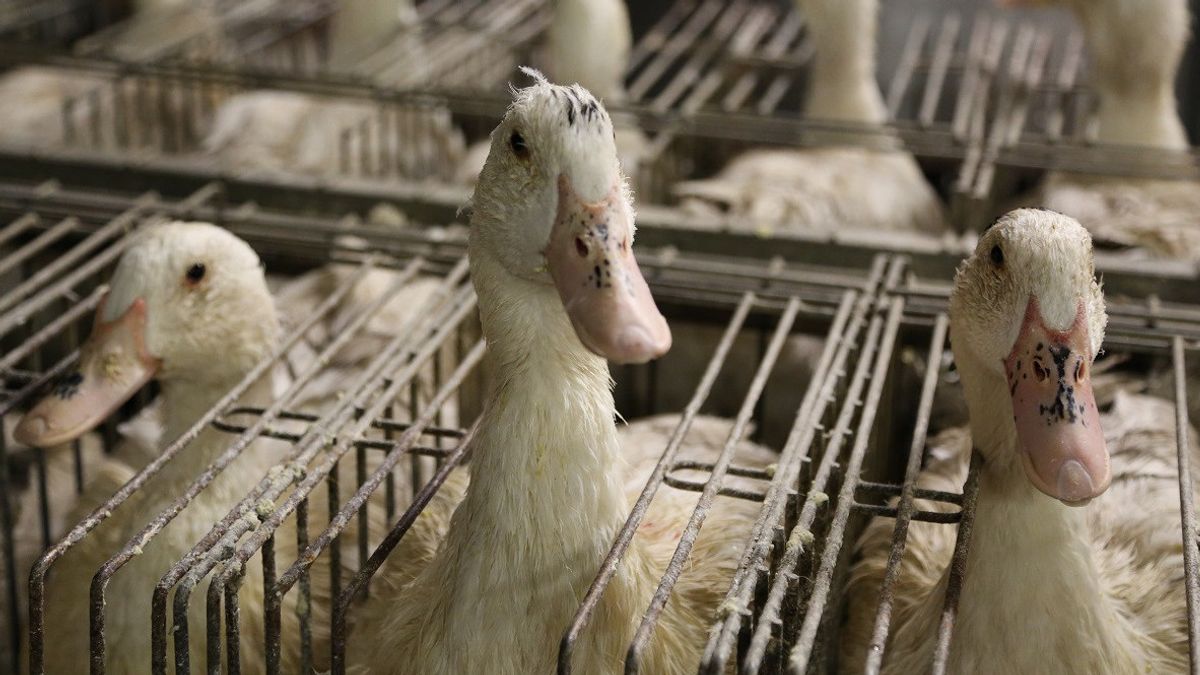JAKARTA - A person in South West England has been confirmed to have bird flu, the UK Health Safety Agency (UKHSA) has said.
In a statement, the agency said it was "very rare" that strains of bird flu passed from birds to humans.
"The person acquired the infection from very close and regular contact with large numbers of infected birds, which they kept in and around their homes over long periods of time," the UKHSA said.
"All contacts of the individual, including those who visited the site, have been traced and there is no evidence of spreading the infection to others. The individual is currently well and is self-isolating."
The case was detected by officials examining people who had close contact with infected livestock, and they found the patient 'low-grade flu'.
Laboratory analysis revealed the virus was a strain of 'H5' found in birds, but it was not yet confirmed that it was an H5N1 infection, the strain currently circulating in poultry in the UK. The World Health Organization (WHO) has been notified in this regard.
"Although the risk of bird flu to the general population is very low, we know that some strains have the potential to spread to humans and that's why we have strong systems in place to detect this early and take action," said Professor Isabel Oliver, chief scientific officer at UKHSA.
"There is currently no evidence that this strain of virus detected in the UK can spread from person to person, but we know that the virus is evolving over time and we are continuing to monitor the situation closely."

"We have followed up on all of these individual contacts and have not identified any further spread. Still, it is important that people do not touch sick or dead birds, and that they follow DEFRA's advice on reporting."
Meanwhile, Professor of Poultry Infection and Immunity at the University of Liverpool Paul Wigley said, although bird flu has the potential to be transmitted from birds to humans, it is extremely rare and, as in this case, usually due to close and prolonged, long-term contact with infected birds.
"Avian influenza such as the H5 serotype is largely adapted to infect birds and is highly unlikely to be passed from person to person," he explained.
"The advice given by APHA and UKHSA regarding contact with infected poultry is reasonable and should be followed. The risk of wider infection in the general population remains low," said Professor Wigley.
SEE ALSO:
To note, in December, poultry farmers were urged to help stop the spread of bird flu after several small outbreaks over the past few months. Thousands of birds have been culled in an effort to prevent the spread of bird flu.
The UK's 'largest ever' outbreak was reported in Northern Ireland last month after two further suspected cases were identified, one in a commercial poultry flock of 14.000 birds near Markethill, County Armagh and a commercial duck flock of 22.000 in Coagh, County Tyrone.
The English, Chinese, Japanese, Arabic, and French versions are automatically generated by the AI. So there may still be inaccuracies in translating, please always see Indonesian as our main language. (system supported by DigitalSiber.id)


















